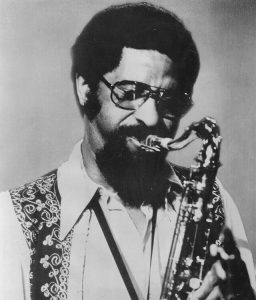John Kirby Day
December 31, 1908 – June 14, 1952
A tribute to the bassist and bandleader
Click here if you have a memory of this artist that you’d like to share
Note: Are you having trouble viewing the video? Click here to view it directly.
space
Click here to Support Jazz on the Tube
Bassist and leader John Kirby was born on December 31, 1908 in Winchester, Virginia.
Kirby actually began with trombone lessons in 1917 and was classically trained, switching to the tuba in 1927 to work in jazz and dance bands.
He moved to New York, made his recording debut in 1929 on tuba with Bill Brown and his Brownies, and joined Fletcher Henderson’s orchestra in 1930, gradually switching to string bass.
Kirby was a driving force on Henderson’s recordings, staying until 1934 when he began a year with Chick Webb’s big band.
A greatly in-demand bassist, John Kirby appeared on many records during 1933-36 and in 1936 was briefly back with Fletcher Henderson in addition to working with the Mills Blue Rhythm Band.
However the bassist had a musical concept, a dream of leading his own three-horn sextet that would feature complex ensembles (which were sometimes based on classical themes), a cool-toned ensemble sound, and the ability to play both hard-swinging jazz and picturesque works.
Hired to lead a band at 52nd Street’s Onyx Club in 1937 (an engagement that lasted for 11 months), Kirby put his concept into action and gradually got the personnel that he wanted: trumpeter Charlie Shavers, altoist Russell Procope, clarinetist Buster Bailey, pianist Billy Kyle and drummer O’Neil Spencer in addition to his own bass and singer Maxine Sullivan (who became his wife).
The original John Kirby Sextet was a hit and they were at their prime during 1938-42. But Spencer contracted tuberculosis (passing away in 1944), the World War II. draft robbed Kirby of some of his key sidemen, and the public’s interest in the pioneering cool jazz group declined.
Kirby struggled with other personnel for a few years, expanded to a septet in 1945 and used the young Sarah Vaughan for a few months but his band was unable to regain its former popularity.
John Kirby tried a comeback including a reunion concert at Carnegie Hall in 1950 but, beyond the concert, his former sidemen had other commitments (Procope was a member of the Duke Ellington Orchestra) and the sextet was finished; the bassist passed away in 1952 when he was just 43.
The John Kirby Sextet only appeared on film once, playing two numbers in the 1947 film Sepia Cinderella; here is “Musicomania” with Shavers, Bailey, altoist Charlie Holmes, Kyle, drummer Sid Catlett and Kirby.
-Scott Yanow
Click here if you have a memory of this artist that you’d like to share
space


